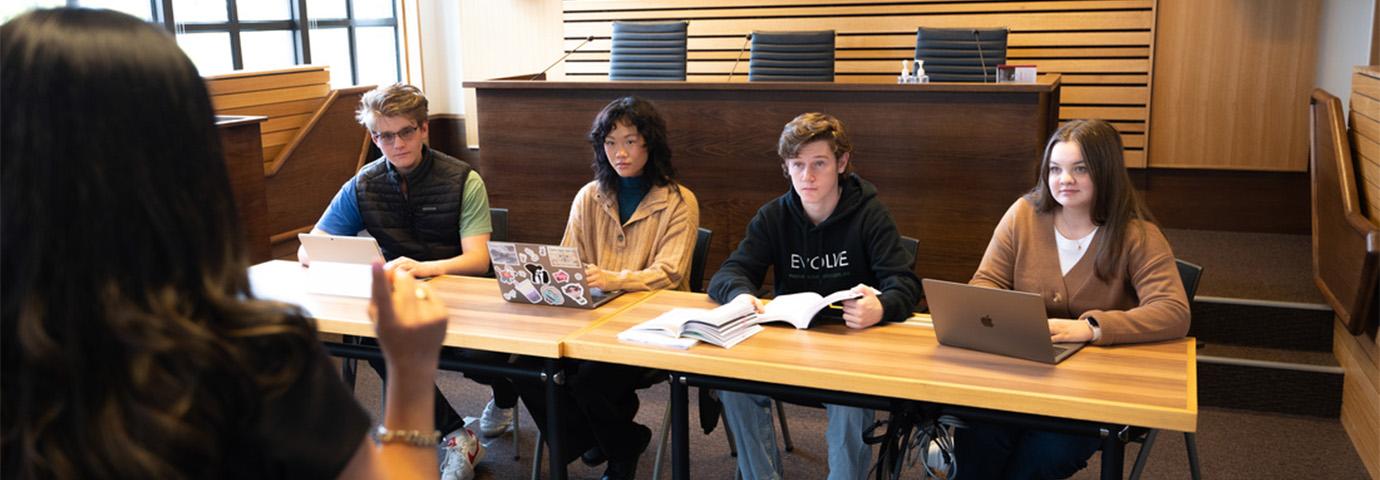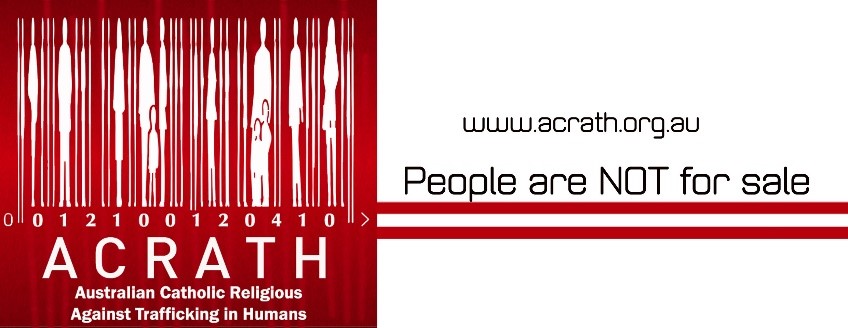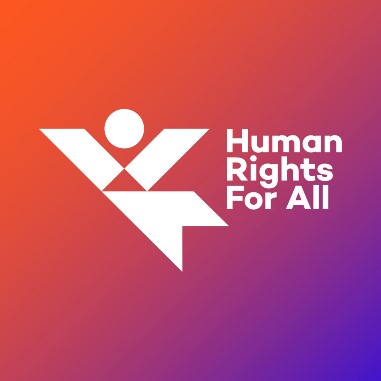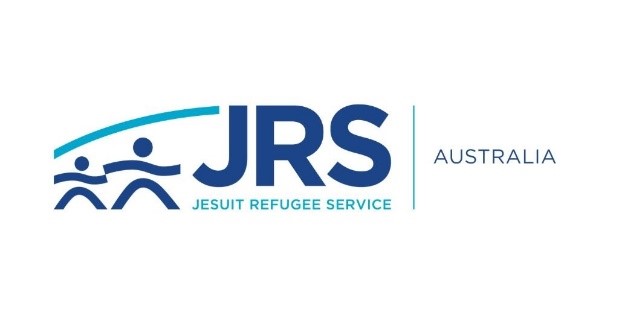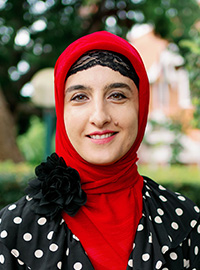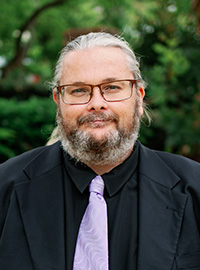-
Top 2% universities worldwide
-
Top 10 Catholic universities globally
-
Top 40 young universities worldwide
Bachelor of Arts/Bachelor of Laws
Course information for - 2024 entry
Offered at 3 locations
- Duration
- 5 years full-time or equivalent part-time
- CRICOS Code
- 079428G
- IELTS
- 7.0 overall score (with individual score of 6.5 in all tests)
- Fees (first year)*
- $31216
- Start dates
- July 2024, February 2025, July 2025, February 2026, July 2026
Overview
Become a lawyer who stands up for people in need, and causes that matter. The Bachelor of Arts/Bachelor of Laws is designed to produce well-rounded and articulate graduates ready for legal practice and a range of professional careers in an increasingly global environment. This double degree is designed to broaden your knowledge and experience across multiple disciplines while honing your communication skills, inspiring critical thinking, and perfecting your research expertise to enhance your employability.
Students who have completed 120 credit points of law units with a grade point average of 5.75 and above may apply to complete an honours degree.

Professional experience
You will complete a minimum of 80 hours pro bono experience.
Work placement
Every undergraduate law student at the Thomas More Law School undertakes a minimum of 80 hours of pro bono placement as part of their degree.
Through these placements, students have contributed many thousands of hours to the legal profession and to the community, representing the interests of those who might not otherwise have access to justice. A great example is our Refugee Law project in Sydney which assists asylum seekers in matters before the Federal Circuit Court. For most clients, English is their second language and they are unfamiliar with the Australian legal system.
Pro bono service provides you with an unrivalled opportunity to experience and reflect upon the operation of the law in a practice setting and on the benefits and challenges for those who are marginalised or disadvantaged in our community.
Professional recognition
This degree has been approved by accreditation authorities as a prerequisite for admission to legal practice in New South Wales, Queensland and Victoria, and is recognised for the purposes of admission in other Australian states and territories.
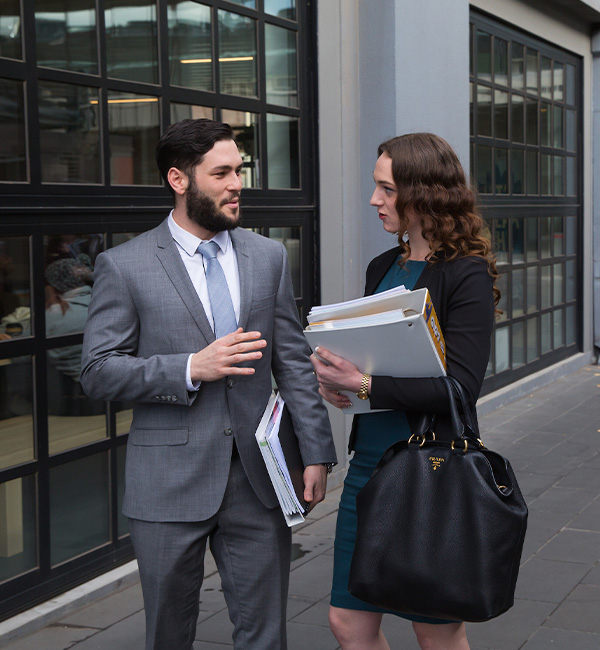
Careers
Our graduates have pursued careers in:
- legal profession
- government administration
- industry regulation
- media
- politics
- NGOs, both domestic and international
- academia
- diplomacy
- the evolving digital environment will open unforeseen opportunities for thinkers trained in the law
Industry partnerships
ACU works with a variety of industry partners:
- Toongabbie Legal Centre
Course details
Course structure
To complete the Bachelor of Arts/Bachelor of Laws, a student must complete 400 credit points (cp).
Available Major(s)
-
Archaeology
This rich archaeology major sequence will focus on Ancient Israel and its material remains including landscapes, architecture, artefacts, and people. It will provide you with core instruction on archaeological evidence and theory combined with opportunities for hands-on experience in the field through a real archaeological excavation in Israel.
You will learn about ancient peoples in the Near East from earliest habitation through interactions of the ancient Israelites with the Egyptians, Assyrians, Babylonians, Canaanites, Philistines, Greeks and finally the Romans. Along the way, you can choose to study related units in history, languages and science depending on your personal interest. You can broaden your experience with an intensive study trip to Rome where you will learn about its past and heritage. Top achieving students can undertake a personalised special research project and progress to honours.
While this major is primarily offered through the Bachelor of Arts and Bachelor of Arts (Western Civilisation), archaeology is interdisciplinary. This means you will also have the opportunity to choose it as a major or minor within a range of other single and double degrees offered at ACU, such as theology, global studies, business, law, and education (availability of the major will vary across campuses).
The major is also a pathway to becoming a secondary-school history teacher when combined with a tertiary teaching qualification.
Business Studies
The business studies major sequence offers you the opportunity to gain a broad understanding of units in human resource management, finance, marketing and accounting. If you’re studying a Bachelor of Arts you could choose to combine your business studies major with a range of related areas such as economics, politics and international relations or media.
The major is also a pathway to becoming a secondary-school business studies teacher when combined with a tertiary teaching qualification.
Drama
The major sequence in drama provides you with a comprehensive overview of theatrical literature and history and a grounding in production work. Through performances, workshops and practical classes, ACU’s drama sequence develops your skills in many areas including theatre production, stage management, direction, and acting, as well as knowledge of theatre history and repertoire. You’ll gain transferrable skills in communication and public speaking, allowing you to seek employment in the performing arts industry or use the skills developed in other professional contexts. When combined with an appropriate tertiary teaching qualification, the drama major is a pathway to becoming a secondary-school drama teacher. You do not need any previous theatre experience and there are no prerequisites for studying this sequence at ACU.
English
Through the study of a broad range of literary texts and approaches to reading them, the English major sequence familiarises you with literary traditions and contemporary literary cultures. This major sequence will reveal the varied ways in which people have lived, thought, felt and imagined, opening up new worlds of understanding. You will develop vital transferrable skills in effective reading, writing, analysis and interpretation that will equip you for a rewarding career in teaching, journalism, the media, or other professions that require articulate and culturally literate graduates.
Geography, Environment and Society
The geography, environment and society major sequence exposes you to the major environmental issues and challenges our world faces today. It provides a methodology for analysis and interpretation and allows you to critically evaluate management strategies. There is an emphasis on project-based research and learning as the sequence progresses, with associated development of skills in data collection (in the field and from secondary sources), collation and analysis using industry-standard equipment and methods, including GIS and Remote Sensing. Field-based learning is a crucial aspect of studying geography at ACU, with opportunities for exciting field trips within Australia and overseas. These skills may then be applied to a range of applied professional situations.
History
The history major sequence brings the past to life by introducing you to a diverse range of societies and cultures that have shaped the modern world. History at ACU has an exciting and innovative global focus. You will have the opportunity to study European, American, Australian, Indigenous, Asian and Ancient history, and to engage with key themes such as war and peace, race and class, gender and sexuality, violence and terrorism, and film and popular culture. In exploring the people, ideas and events that have defined the past and given meaning to the present, you will develop critical skills that will equip you for a rich and rewarding professional career.
Mathematics
The major sequence in mathematics is designed to provide you with a broad introduction to the study of traditional and contemporary mathematics. Highlights include introductions to cryptography, project management, networks, mathematical modelling, and finance. The major also covers the traditional areas required by those intending to become primary or secondary teachers, as teaching of mathematics from K-12 is a high demand field and the demand will grow in the future. The major sequence can act as a pathway to becoming a secondary-school maths teacher when combined with a tertiary teaching qualification.
Music
Our music major sequence develops your knowledge and skills in music language, analysis and musicianship. You’ll be supported to become a professional musician as you learn to apply the knowledge and skills required to perform, create, manipulate, interpret and critique music in safe and culturally appropriate ways, and in ways that align with the competency norms of Australia's creative industries. A music sequence does not require an audition for entry at ACU. The major is also a pathway to becoming a secondary-school music teacher when combined with a tertiary teaching qualification.
Philosophy
The philosophy major sequence introduces you to serious and detailed thinking about the really big questions concerning reality as a whole, human nature, ethics, language, religion, truth and knowledge, logic, beauty, and justice. The study of philosophy, in both its historical and contemporary dimensions, assists you to develop critical thinking skills and clarity of thought, through which you learn to assess the strengths and weaknesses of complex arguments while also honing verbal and written communication skills. Employers across a very broad range of industries (including education, business, public administration, law, media and technology) report that they highly value the kinds of adaptable skills and attributes possessed by philosophy graduates.
Politics and International Relations
Politics is the study of power, violence and justice in our world. The questions of who gets what, why and how much, are persistent concerns plaguing all societies. In a world increasingly short of resources, individuals and nations now frequently do battle with each other to secure their own prosperity and peace. By looking at how these battles are won and lost, the major sequence of politics and international relations gives you insight into the workings of diplomacy, warfare, elections, the global economy, the nature of political parties, and the rise and fall of great powers. From everyday politics at the local level to the politics among nations, the politics major sequence at ACU will offer you the conceptual tools to think critically and act decisively in a world that is ever changing.
The major is also a pathway to becoming a secondary-school politics and society and culture teacher when combined with a tertiary teaching qualification.
Psychology
The psychology major sequence provides you with a comprehensive and systematic study of human behaviour. The emphasis is on the dynamic nature of our behaviours and the interaction of biological, social and cultural factors that influence these at all levels and at all stages of the life span.
The major is also a pathway to becoming a secondary-school psychology teacher when combined with a tertiary teaching qualification.
(Please note that this major is not an APAC accredited major in psychology; so this major does not offer a career pathway to become a psychologist).
Sociology
Sociology is one of the most relevant disciplines for understanding complex social, cultural, and political phenomena today. This "Queen of Disciplines" offers you a range of exciting theoretical, methodological, and conceptual tools for an understanding of human action, social and systemic change, institutions, and the deeper meanings of life. With subject matter such as globalisation, religion, health, work and economy, social movements, gender, and culture, sociologists are often crucially involved in a number of key debates around the ideas and events that impact on real people and their communities. These areas are a part of the sociology major sequence at ACU. You’ll acquire high-order transferrable skills in reasoning, theorising, communicating, and research to do with a broader and deeper perspective of events, all of which are highly sought after by employers.
The major is also a pathway to becoming a secondary-school society and culture teacher when combined with a tertiary teaching qualification.
Study of Religions
Our multicultural societies are home to a vibrant mix of religious beliefs and experiences. Undertaking a major sequence in study of religions is an exploration of this diversity and its implications for contemporary society. You will study three of the major world religions —Christianity, Judaism and Islam — as well as having the opportunity to study religions practised in contemporary South and East Asia. We also look at Aboriginal and Torres Strait Islander spiritualities, and their connectedness to Country, as well as exploring the spiritual and religious traditions of other Indigenous peoples from around the world. In all units of study, study of religions goes beyond merely understanding the practice of religion. You will graduate with a critical awareness of the historical and contemporary aspects of each religion, as well as the need for interfaith relations and dialogue.
Theological Studies
Cultivate an adult faith and deeper spirituality. A major sequence in theological studies gives you new enthusiasm, fresh insight and deeper understanding to the gift of faith, and greater depth to spiritual experience. Key themes in theological studies include: the person and work of Jesus Christ; the Word of God in the Scriptures; the sacraments and the Church’s liturgy; and the values, practices, responsibilities and traditions of a Christian way of life. It relates faith, spirituality and scholarship to a concern for human flourishing, the common good, the dignity of the human person, and stewardship of the environment and all creation. Various theological approaches will be considered in the light of contemporary world views and interfaith dialogue. You can examine the theme of social justice and its importance in the mission and teaching of Jesus, a study which assists you in thinking critically about the world around you.
The major is also a pathway to becoming a secondary-school teacher when combined with a tertiary teaching qualification.
Visual Arts
The visual arts major sequence provides a mix of art and design history and theory electives and studio-based fine art. You’ll experience a range of professional practice opportunities such as entering your work in art competitions, writing publish-ready interviews, articles and art reviews and presenting you artwork in group exhibitions in the ACU gallery. You will be trained by staff who are active practitioners in their field and benefit from small class sizes in an intimate studio environment. If you’re on an education pathway, you can combine a major in the visual arts with a teaching qualification to prepare you for secondary level visual arts teaching.
Available Minor(s)
-
Archaeology
The archaeology minor sequence will focus on the societies of people in the past through engaging with their ancient landscapes, physical remains and material culture. You will focus on Ancient Israel in its Near Eastern context and Rome, especially its province of Judaea. The minor includes coursework and fieldwork opportunities.
Business Studies
The business studies minor sequence offers students the opportunity to gain an understanding in areas including human resource management, finance, marketing and accounting. If you’re studying a Bachelor of Arts you could choose to combine your business studies minor with a range of related areas such as economics, politics and international relations or digital media.
Communication
Students can choose to learn skills that underpin successful university study and also develop abilities that are immediately transferrable to any workplace and are highly sought after by employers. Depending on unit selection, the sequence develops hands-on skills in interpersonal, intercultural, and workplace communication, as well as providing training in oral and written communication skills. You will have the opportunity to select units that will let you work with different modes of writing including report writing, creative writing, writing for social media, feature writing and blogs, and you will be taught to speak in public, lead meetings, conduct interviews and negotiations and undertake mediation and conflict management. Students will leave the minor as confident and capable communicators. Employers value staff who possess the ‘soft skills’ that are developed within a Communications minor. Having a willingness to collaborate, being able to effectively problem solve, having critical thinking skills, possessing good interpersonal skills, and being able to adapt to change are in high demand in the workplace.
Community Services
Drama
The minor sequence in drama provides you with a comprehensive overview of theatrical literature and history and a grounding in production work. Through performances, workshops and practical classes, ACU’s drama sequence develops your skills in many areas including theatre production, stage management, direction, and acting, as well as knowledge of theatre history and repertoire. You’ll gain transferrable skills in communication and public speaking, allowing you to seek employment in the performing arts industry or use the skills developed in other professional contexts. When combined with an appropriate tertiary teaching qualification, the drama major is a pathway to becoming a secondary-school drama teacher. You do not need any previous theatre experience and there are no prerequisites for studying this sequence at ACU.
Digital Technologies (Computing)
Digital Technologies drive innovation in every aspect of contemporary life and is an essential and component of many disciplines. The computing sequence develops knowledge and skills in information technology, explores data communications and database systems, and introduces students to problem solving and design in digital technologies and programming. The knowledge and skills gained in the minor expands opportunities for students seeking careers in the growing number of fields that require a strong foundation in computing.
Economics
The economics minor sequence at ACU promotes the knowledge and understanding of local business operations, consumer behaviour, economic policy, and national and global economic issues. The sequence encourages you to develop your interest in contemporary economic events and helps you to understand important issues such as unemployment, foreign debt, changes in the value of the dollar and the implication of these issues for consumers, businesses and the nation. You will also consider the policy options that are available to deal with these important issues in Australia and globally. The study of economics provides you with the knowledge and skills for a variety of careers in both the private and public sectors, as well as providing a pathway for further study.
Education
English
Through the study of a broad range of literary texts and approaches to reading them, the English minor sequence familiarises you with literary traditions and contemporary literary cultures. This minor will reveal the varied ways in which people have lived, thought, felt and imagined, opening up new worlds of understanding. You will develop vital transferrable skills in effective reading, writing, analysis and interpretation that will equip you for rewarding careers in teaching, journalism, the media, and other professions that require articulate and culturally literate graduates.
Geography, Environment and Society
The geography, environment and society minor sequence exposes you to the major environmental issues and challenges our world faces today. It provides a methodology for analysis and interpretation and allows you to critically evaluate management strategies.
Global Studies
Graphic Design
Graphic design is an innovative and essential component of contemporary visual culture and the built environment. Understanding the principles of effective visual communication adds competitive value to projects from all disciplines and allows you to develop a broad range of skills transferable to any workplace. The graphic design minor sequence will prepare you with authentic assessment projects designed to build experience and understanding of design processes methodology and equip you to confidently create and assess effective visual communication and develop your own design solution strategies. Graphic design units focus on the following areas: design for publication, information design, interactive and web design, typography, illustration, social media, visual storytelling and the digital image. Regardless of your technical background, you will acquire broad skills in current design software programs in a workshop-based computer lab class.
History
The history minor sequence brings the past to life by introducing you to a diverse range of societies and cultures that have shaped the modern world. History at ACU has an exciting and innovative global focus. You will have the opportunity to study European, American, Australian, Indigenous, Asian and Ancient history, and to engage with key themes such as war and peace, race and class, gender and sexuality, violence and terrorism, and film and popular culture. In exploring the people, ideas and events that have defined the past and given meaning to the present, you will develop critical skills that will equip you for a rich and rewarding professional career.
Healthy Development
The healthy development minor sequence gives you the opportunity to study contemporary topics in health and human development. This minor sequence explores issues related to nutrition and exercise; the human life cycle from birth to death, families, sex, adolescence and international perspectives on health issues. If you wish to do a Master of Teaching you can take this sequence in the Bachelor of Arts as a pathway to teaching health and human development in schools. Alternately, the minor can be taken alongside sequences such as sociology and youth work to provide a broader perspective on health and development.
International Development Studies
The international development studies minor sequence focuses on contemporary understandings of the causes and consequences of poverty, conflict, refugees and migration, and develops work-ready skills in project management, research and policy development. You’ll be prepared for a career, either domestically or abroad, in a diverse range of government and non-government organisations tasked with supporting the alleviation of poverty in the developing world.
Languages
Legal Studies
Mathematics
The minor sequence in mathematics is designed to provide a broad introduction to the study of traditional and contemporary mathematics. Highlights include introductions to cryptography, project management, networks, mathematical modelling, and finance. The minor also covers the traditional areas required by those intending to become primary or secondary teachers, as teaching of mathematics from K-12 is a high demand field and the demand will grow in the future.
Music
The Music sequence develops skills in composition, music technology, musicology, music criticism and analysis. Students engage with the fundamentals of music language as it operates in a diverse range of styles and genres, and are taught to observe, understand and apply complex music processes drawn from the music of the past and the present. Students also engage with the cultural, social, aesthetic, historical and ethical functions of music through studies in musicology. Career outcomes that can arise from this sequence include teaching (when the major is combined with year 12 music performance or AMEB grade five and a tertiary teaching qualification), freelance composition (for film, television, video games, and commercials), music journalism and blogging, publishing, music administration, music retail, music research and work as 'embedded' creative practitioners using the skills developed through the sequence in the corporate and public sector.
Philosophy
The philosophy minor sequence introduces you to serious and detailed thinking about the really big questions concerning reality as a whole, human nature, ethics, language, religion, truth and knowledge, logic, beauty, and justice. The study of philosophy, in both its historical and contemporary dimensions, assists you to develop critical thinking skills and clarity of thought, through which you learn to assess the strengths and weaknesses of complex arguments while also honing verbal and written communication skills. Employers across a very broad range of industries (including education, business, public administration, law, media and technology) report that they highly value the kinds of adaptable skills and attributes possessed by philosophy graduates.
Politics and International Relations
Politics is the study of power, violence and justice in our world. The questions of who gets what, why and how much, are persistent concerns plaguing all societies. In a world increasingly short of resources, individuals and nations now frequently do battle with each other to secure their own prosperity and peace. By looking at how these battles are won and lost, the discipline of politics gives you insight into the workings of diplomacy, warfare, elections, the global economy, the nature of political parties, and the rise and fall of great powers. From everyday politics at the local level to the politics among nations, the politics and international relations minor sequence at ACU will offer you the conceptual tools to think critically and act decisively in a world that is ever changing.
Psychology
The psychology minor sequence provides you with a comprehensive and systematic study of human behaviour. The emphasis is on the dynamic nature of our behaviours and the interaction of biological, social and cultural factors that influence these at all levels and at all stages of the life span.
(Please note this minor does not offer a career pathway to become a psychologist).
Sociology
Sociology is one of the most relevant disciplines for understanding complex social, cultural, and political phenomena today. Often cited as the "Queen of Disciplines" due to it producing a number of key ideas used by many subjects that study society and culture, sociology offers students a range of exciting theoretical, methodological, and conceptual tools for an understanding of human action, social and systemic change, institutions, and the deeper meanings of life. With subject matter such as globalisation, religion, health, work and economy, social movements, gender, and culture, sociologists are often crucially involved in a number of key debates around the ideas and events that impact on real people and their communities. All of these areas are a part of the sociology sequence at the ACU. Operating in both government and private industry, sociologists are employed in a variety of roles that centre on people and their environments including community project officers, policy planners and researchers, marketers and social media publicists. Sociology at the ACU helps students acquire high-order transferrable skills in reasoning, theorising, communicating, and research to do with a broader and deeper perspective of events, all of which are highly sought after by employers.
Theological Studies
Cultivate an adult faith and deeper spirituality. A major sequence in theological studies gives you new enthusiasm, fresh insight and deeper understanding to the gift of faith, and greater depth to spiritual experience. Key themes in theological studies include: the person and work of Jesus Christ; the Word of God in the Scriptures; the sacraments and the Church’s liturgy; and the values, practices, responsibilities and traditions of a Christian way of life. It relates faith, spirituality and scholarship to a concern for human flourishing, the common good, the dignity of the human person, and stewardship of the environment and all creation. Various theological approaches will be considered in the light of contemporary worldviews and interfaith dialogue. You can examine the theme of social justice and its importance in the mission and teaching of Jesus, a study which assists you in thinking critically about the world around you.
Veterans Arts Minor
Visual Arts
The visual arts minor offers a mix of art and design history and theory and studio-based fine art. You will be trained by staff who are active practitioners in their field and benefit from small class sizes in an intimate studio environment.
Youth Work
Youth work is an exciting and challenging minor sequence that introduces you to the theoretical insights and practical competencies required for dealing with the needs, problems and aspirations of young people. The youth work sequence acknowledges the social and cultural environments within which young people live and helps foster young people's emotional and social development. Subjects in the sequence include youth sociology, adolescent development, youth work practice and building relationships and supporting young people and youth work in community and family settings.
Course map
Graduate statement
AQF framework
Double Bachelor - Bachelor/Bachelor - AQF Level 7Additional course information
Sydney students will be required to take Arts units at the Strathfield campus.
Overseas study available
You’ll have the opportunity to study the university Core Curriculum at our Rome campus. A number of elective units in this degree are also available to study overseas.
Entry requirements
View transparency admission information
International applicants
An applicant must also comply with the Admission to Coursework Programs Policy.
To be eligible for admission to the course, an applicant must have completed the following prerequisites at year 12 level, or equivalent:
English language requirements
IELTS (International English Language Testing System): Overall score of 7.0, Individual score of 6.5 for all tests.
TOEFL (Test of English as a Foreign Language – Academic): from an Internet based total of 94, achieve a minimum of 24 in writing, 20 in speaking and listening, 19 in reading.
Adjustment factors
If you’re currently completing Year 12 you may be eligible for adjustment factors that can boost your rank and help you get into your desired course.
Adjustment factors may be applied to your TAC application if you study particular subjects, attend schools geographically close to our campuses or in certain regional areas, apply as an elite athlete or performer or meet certain other criteria.
Inherent requirement
There are essential components of a course or unit that demonstrate the capabilities, knowledge and skills to achieve the core learning outcomes of that course or unit. You will need to be able to meet these inherent requirements to complete your course.
Learn more about inherent requirements for your course and how they affect you
Pathways
Pathways into course for international applicants
If you don’t currently meet the direct entry requirements for admission to your chosen program, don’t worry. Our range of pathway programs can help you build the language proficiency, academic skills and confidence you need to succeed.
Find out more about English language programs
Further study
A student who has completed at least 120 cp of LAWS units of the degree with a grade point average (GPA) of at least 5.75 may be eligible for Admission to the Bachelor (Honours degree).
An applicant must also comply with the Admission to Coursework Programs Policy.
A student who achieves an Honours at a minimum level of Second Class Division A (Distinction average) may be eligible for Admission to the degree of Doctor of Philosophy (PhD).
Meeting the eligibility requirements for admission is not in itself a guarantee of admission. The candidate’s potential to undertake research, the quality and feasibility of the research proposal, the availability of appropriate supervision and the referee’s reports will all be taken into consideration. Please refer to Higher Degree Research Regulations.
A candidate for the degree of Doctor of Philosophy must comply with the Higher Degree Research Regulations.
Refer to your relevant Tertiary Admission Centre website for future years' entry requirements.
Fees
Course costs
- Unit fee: $3902
- Average first year fee: $31216
- Estimate total cost: $156080
The Tuition fees quoted above are for commencing students in the current year who undertake a normal full-time load. The Unit Fee is based on a 10cp unit. Fees are reviewed annually.
Tuition fees for continuing students may increase by up to 3 percent each year for the minimum duration of the course as provided on your electronic Confirmation of Enrolment (eCOE). Students who continue to study beyond the minimum duration will have the relevant annual commencing rate applied to their fees for subsequent study periods.
Payment options
You should be able to concentrate on getting good marks instead of worrying about how you’ll pay your fees. We have a number of options that can help you ease the financial burden, including government assistance, scholarships and income support.
Scholarships
You could be eligible for one of the hundreds of scholarships we award each year to help students from across the university with the cost of studying, accommodation or overseas study opportunities. Some of our scholarships are awarded on the basis of merit, but these aren’t just for the academically gifted; ACU also recognises excellence in community engagement and leadership. We also offer a range of scholarships for those who may be struggling financially or who have faced other barriers to accessing education.
How to apply
International applicants
Direct application
Apply now
Information on the application procedure
International students undertaking an Australian Year 12 qualification should apply through the relevant tertiary admissions centre.
Deferment
Yes. See Defer your offer.
Students with a Student Visa will need to complete the program in minimum duration, study at least one subject on-campus each semester and must not undertake more than 33% of the program online.
Staff Profile
Dr Sevda Clark
Lecturer, Thomas More Law School
Dr Sevda Clark is a human rights lawyer, policy analyst and Lecturer at the Thomas More Law School where she teaches International Law, Administrative Law and Constitutional Law She is admitted in the Supreme Court of NSW.
Before joining the Law School, Clark worked as a legal policy analyst at the Attorney-General’s Department. She was also a Principal Research Officer for the Parliamentary Joint Committee on Human Rights at the Department of the Senate, Parliament House Canberra.
As Doctoral Research Fellow at the University of Oslo, she advised governments and non-governmental organisations on the normative development and implementation of human rights law at the international and domestic levels. She acted as Expert advisor to the United Nations during the drafting of the Third Optional Protocol the Convention on the Rights of the Child on a Communications Procedure and represented the National Institute for Human Rights in Norway at the Working Group sessions in Geneva, making oral and written submissions on the development of the treaty.
Clark serves as a Member of the Advisory Board, Human Rights Education Review and an Editorial Board Member of the Australian Feminist Law Journal.
Clark holds a Doctor of Philosophy and a Master of International Human Rights Law from the University of Oslo, Norway. She also holds a Bachelor of Laws and Bachelor of Arts (Hons English Literature) from the University of Sydney.
Dr Mark Hamilton
Lecturer, Thomas More Law School
Mark Hamilton is a lecturer in both law and criminology at ACU. He is also the course coordinator for those disciplines. Having commenced at ACU in 2022, Mark has had the opportunity to teach a variety of units including introductions to criminology and criminal justice, violence, juvenile justice, foundations of law and legal research, criminal law, evidence and environmental law. His primary interest is restorative justice in the context of environmental law. He is also interested in green criminology and environmental victims. Mark has worked as a tipstaff to a judge of the Land and Environment Court of NSW, and as a solicitor in private practice.
Mark enjoys academic pursuits and has bachelor degrees in science (psychology) and law from the University of Wollongong; masters degrees in environmental law (University of Sydney), politics and public policy (Macquarie University), and law (University of Sydney); and a PhD in law from the University of New South Wales. His PhD doctorate has been published as a monograph (Environmental Crime and Restorative Justice: Justice as Meaningful Involvement, Palgrave Macmillan, 2021).
Testimonial

“When I started my law degree, I was not really sure where it would lead me. What was great about the law school was the way it gave me so many opportunities to try different types of law and to get practical legal experience as I progressed through the degree. In the end, I secured a graduate position with one of the country’s leading commercial law firms. The encouragement and support I received from the Law school was fantastic.”
AlessandreArts/Law alumniHave a question?
We're available 9am–5pm AEDT,
Monday to Friday
If you’ve got a question, our AskACU team has you covered. You can search FAQs, text us, email, live chat, call – whatever works for you.

